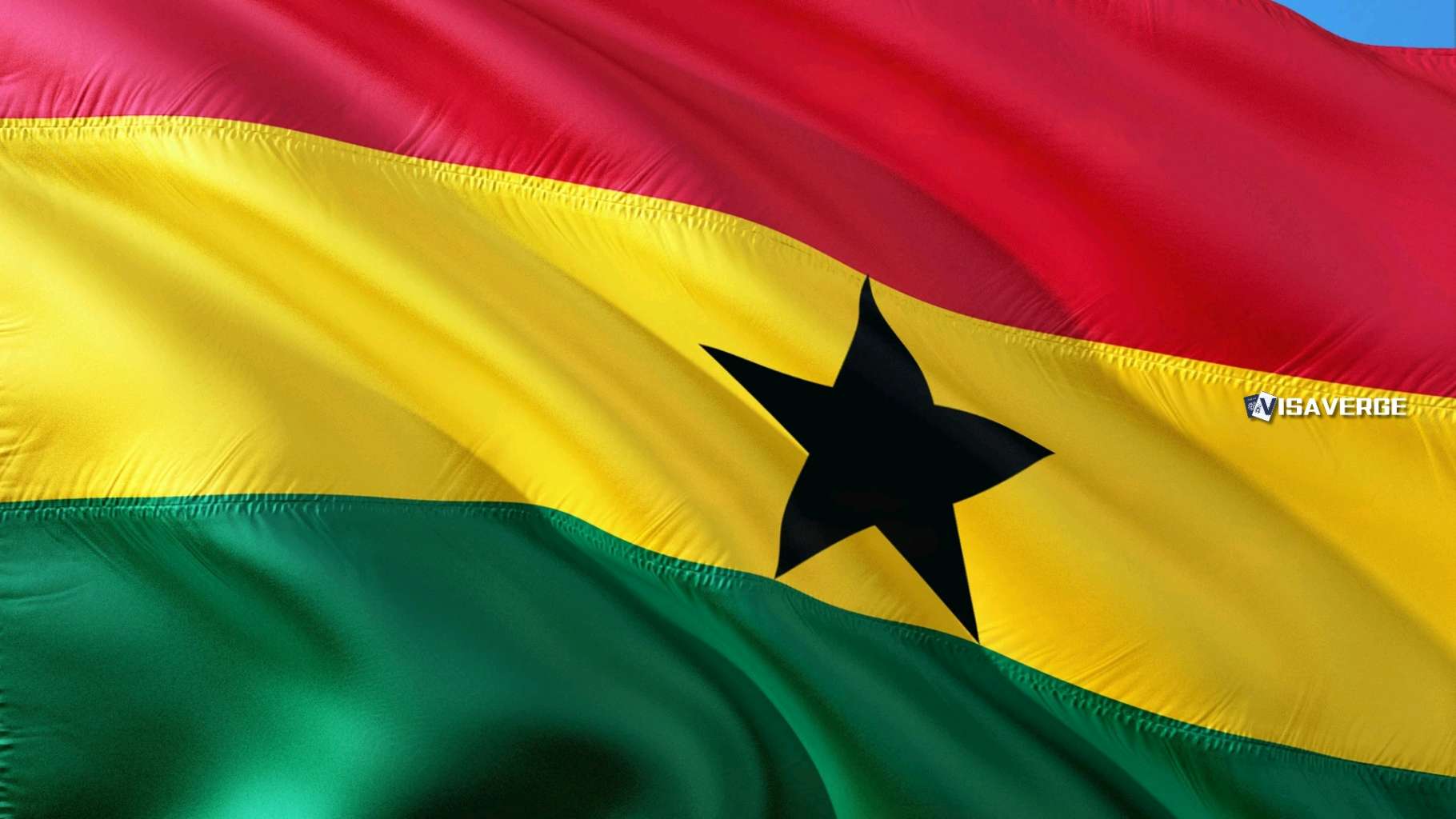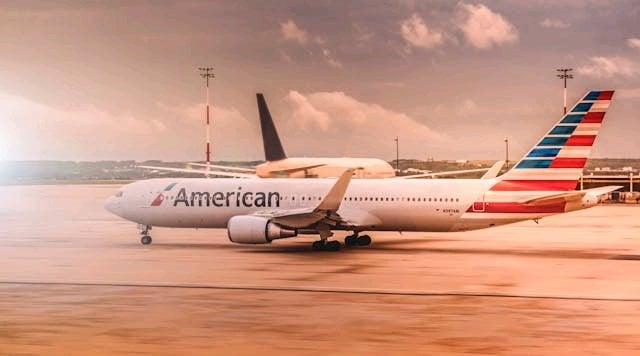(GHANA) Ghana’s government is racing to launch a new national carrier in 2025, betting that a fresh state-backed airline will turn the country into West Africa’s next aviation crossroads and restore a flag presence in international skies after years without one.
The push gained formal shape on May 7, 2025, when Transport Minister Joseph Bukari Nikpe inaugurated a 10-member National Airline Task Force in Accra, giving officials and industry veterans a tight timetable to deliver a business plan, secure approvals and line up partners capable of funding and running the project.

Task force, leadership and mandate
Chaired by Charles Asare, the former managing director of Ghana Airports Company Limited, the group has been asked to design a sustainable business model and operational framework and to steer the carrier through safety and economic licensing with the Ghana Civil Aviation Authority, which revoked an earlier attempt to revive a state airline.
Those previous efforts included a partnership with Ashanti Airlines that collapsed after the private operator failed to secure an Air Operator’s Certificate and saw its provisional approval withdrawn by 2024. That setback underlined how tightly the regulator guards entry into Ghana’s skies and how politically sensitive any new national carrier will be.
Government goals and strategic rationale
Officials say the new plan is broader than national pride. By restoring a home-based airline able to serve both regional routes and long-haul markets, the government hopes to:
- Draw transit traffic
- Support tourism
- Make it easier for business travellers and the Ghanaian diaspora to reach Accra without relying on foreign hubs
Analysis by VisaVerge.com notes that Accra’s geographic position already makes it an attractive stop between southern Africa, Europe and North America. However, the absence of a strong local airline has limited Accra’s role as a hub, leaving much connecting traffic in the hands of foreign carriers that base route choices on global network needs.
Partnerships and external support
This time, Ghana is leaning heavily on foreign technical and financial partners.
- Officials point to ongoing talks with aviation players in the United Arab Emirates.
- Potential collaboration with Emirates could bring aircraft, training and management experience.
- Reports have also highlighted discussions with TAP Air Portugal around a partnership and possible joint branding.
Officials have emphasized that bringing in strategic partners from outside Ghana is a way to introduce outside expertise and discipline to avoid past pitfalls.
Timetable, deliverables and deadlines
The National Airline Task Force is expected to submit a detailed business model and operational blueprint to the Ministry of Transport and the presidential cabinet by mid-2025. The submission should cover:
- Fleet choices
- Route priorities
- Staffing plans
- Ownership mix (state vs private capital)
- Measures to ensure commercial viability and avoid repeated bailouts
Government sources say they want the carrier flying commercially by the second half of 2025, with ticket sales possibly starting as early as April or May. Some early deadlines have already slipped as talks with partners and advisers take longer than expected and regulators weigh safety and financial plans.
Key timeline (as described)
| Milestone | Target date |
|---|---|
| Task force inaugurated | May 7, 2025 |
| Task force report to ministry/cabinet | Mid-2025 |
| Possible start of ticket sales | April–May 2025 (reported possibility) |
| Target for commercial operations | Second half of 2025 |
Important: Some deadlines have slipped due to extended partner/adviser talks and regulatory scrutiny.
Competitive landscape and capacity concerns
The timetable is complicated by rising competition at home. Notable developments:
- Air Ghana, a long-established cargo operator, plans to launch passenger services in late 2025 using Boeing 737 aircraft.
- Domestic market currently shared by Africa World Airlines and PassionAir.
Potential impacts:
- Competition for pilots, engineers and scarce airport slots at peak times.
- For travellers, more Ghana-based airlines could mean lower fares, extra routes to secondary cities and better connection times to Europe and North America.
- Conversely, a crowded market could push weaker players into losses if demand does not grow as fast as capacity.
Regulatory role and approvals
For the aviation regulator, the task is to balance political urgency with passenger protection and international safety rules.
- The Ghana Civil Aviation Authority must issue both economic and safety approvals, including the Air Operator’s Certificate that previously tripped up Ashanti Airlines.
- The regulator faces growing pressure from business groups and unions keen to see new jobs at the airport and in airline operations.
Risks, safeguards and government commitments
The government has repeatedly stressed the need to avoid the fate of earlier state airlines that collapsed under heavy debts and political interference. Key government-intended safeguards include:
- Insisting on clear performance targets in shareholder agreements
- Bringing in strategic external partners to ensure professional management
- Focusing on safety, service quality and financial sustainability
Critics warn about the risks of launching a state-backed airline during tight public finances. Concerns include:
- Government guarantees, fuel subsidies or airport fee discounts potentially tilting competition
- Exposure of taxpayers if the carrier fails to meet revenue targets or faces shocks (fuel price spikes, currency swings)
Regional context and long-term implications
Regional dynamics add pressure: several West African states have recently revived or launched flag airlines, trying to capture traffic after the fall of Nigeria’s old national carrier and the struggles of other regional brands.
To stand out, Ghana’s leaders emphasise that the project must be professionally run and customer-focused, not just a logo on the tail. That requires:
- Careful route planning and realistic growth targets
- Ongoing investment in staff training, digital booking systems, and maintenance facilities
- Steady operational discipline to win passenger and regulator trust from day one
Socioeconomic effects
A credible national carrier could reshape wider mobility patterns:
- Easier connections to Accra may encourage skilled workers to take up contracts in Ghana.
- Direct flights could simplify travel for Ghanaian professionals, students and family visitors, reducing reliance on distant hubs.
- For the large Ghanaian community in Europe and North America, direct flights can reduce travel time and costs, support family ties, enable business investments, and facilitate attendance at major events.
- Reliable schedules are particularly important for people travelling for medical treatment or time-sensitive work.
Key takeaway: The success of the project depends on professional governance, realistic planning and strong partner support to manage both commercial and fiscal risks.
For now, all eyes remain on the task force’s report and the cabinet’s final green light.
This Article in a Nutshell
Ghana formed a 10-member National Airline Task Force on May 7, 2025, led by Charles Asare to launch a state-backed national carrier in 2025. The group must deliver a sustainable business plan, secure Air Operator’s Certificate and economic approvals, and attract strategic partners—reportedly from the UAE, Emirates and TAP. Officials aim for commercial flights in the second half of 2025, though timelines have slipped and competition from Air Ghana’s planned passenger services poses operational and staffing challenges.













